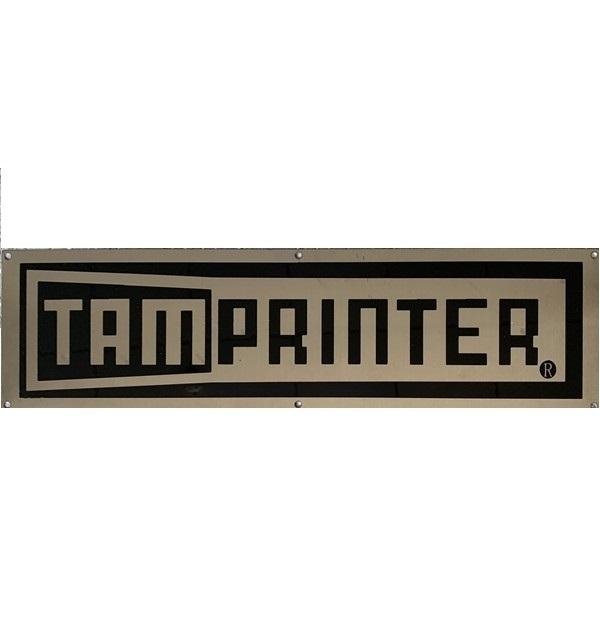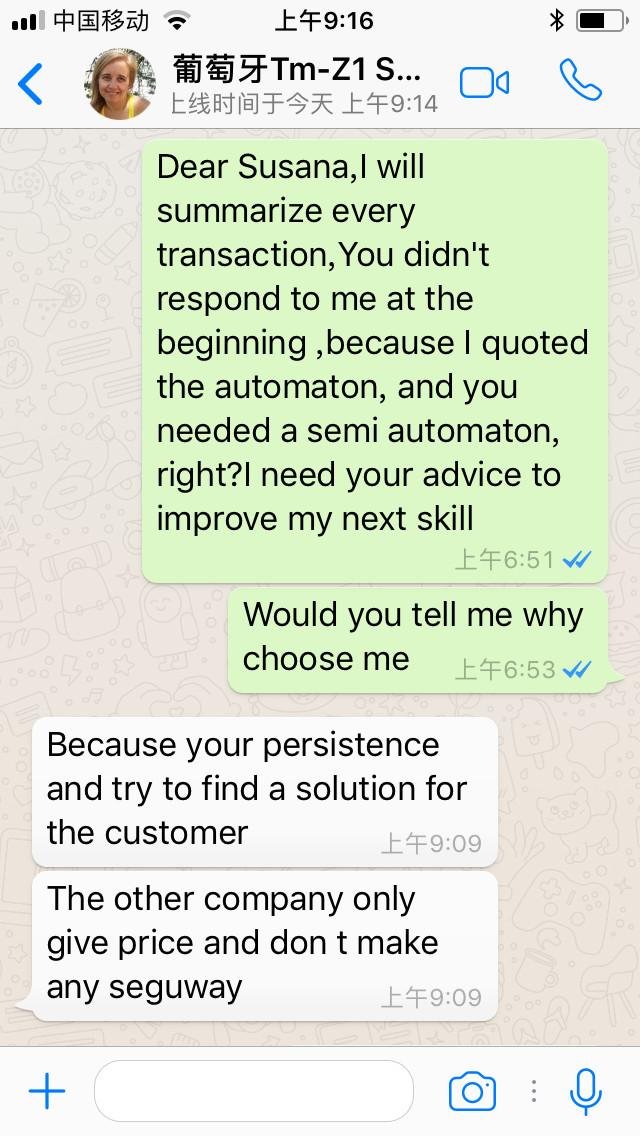|
Discover elegant solution for Your Business
|
|
|
|
|
Success stories
Overbearing bargain Portugal PVC sheet print customer purchasing story
2017-11-08
Portuguese PVC sheet print customers Mrs. Susana 2017-10-04 need screen printer+uv tunnel dryer,we send many email never reply,
yesterday,I did a customer satisfaction survey and she finally told me because our price is too high
So we focus on their company's product features, suggest a lot of solutions, and ultimately she pick one, and then paid.
From telling me her product size to send me a copy of bank bill only 3 hours.yes,only 3 hours.
i asked her why choose me,attached her reply Screenshots
The customer responds that your price is too high. Now what?
Is it the "price objection," or the "price complaint"?
When comments about money start, the first thing you need to do is determine whether it's the "price objection" or the "price complaint."
For example, the most common way for a customer to say no to a deal is to say the price is too high. But a customer may have multiple reasons for saying this. Perhaps saying the price is too high is easier than getting into a lengthy discussion about the real objection, say, the seller’s lack of a track record. Perhaps the customer doesn’t want to offend the seller by saying his or her product is inferior. Perhaps the price is not high, but the customer is angling for a better deal. Or perhaps the customer has only a vague idea of why he or she is reluctant to buy and is just saying the first thing that comes to mind.
If any or all of these motivations lie behind a price objection, it obviously would be a mistake for the seller to drop the price or even start negotiating. Instead, the seller should ask questions aimed at determining if price is indeed the issue. There are a number of ways to go about this.
Ask for specifics. How high is my price, exactly? At what price would you be willing to order? The more vague the answers are, the more likely price isn’t the real problem.
Invite other objections. Is there anything besides price holding you back? If my price were acceptable, would you order? Sometimes customers need a little encouragement to tell you what’s really on their minds.
Suggest another product or service. Would you be more interested in our economy model? How about our pay-as-you-go service plan? If the customer jumps at the opportunity to consider a less expensive alternative, pricing is likely the problem. If the customer hesitates, the price objection is a bluff or something else is standing in the way.
for example:
“I’m not ready to order” could mean I just ordered from a competitor, or I’m not authorized to place an order.
“Your product is fantastic” could mean I want to make you feel good although I have no intention of doing business with you.
“We do business only with authorized vendors” could mean you haven’t given me enough reasons to go through the effort of setting you up as a vendor.
Bottom line: Sellers should be wary about getting sucked into a conversation about an objection -- or even a compliment -- until they are reasonably sure they will be talking about the real objection. As with so many aspects of sales, the key to success is not a glib tongue, but a knack for asking the right questions and an attentive ear.
|
|
|
|
|

